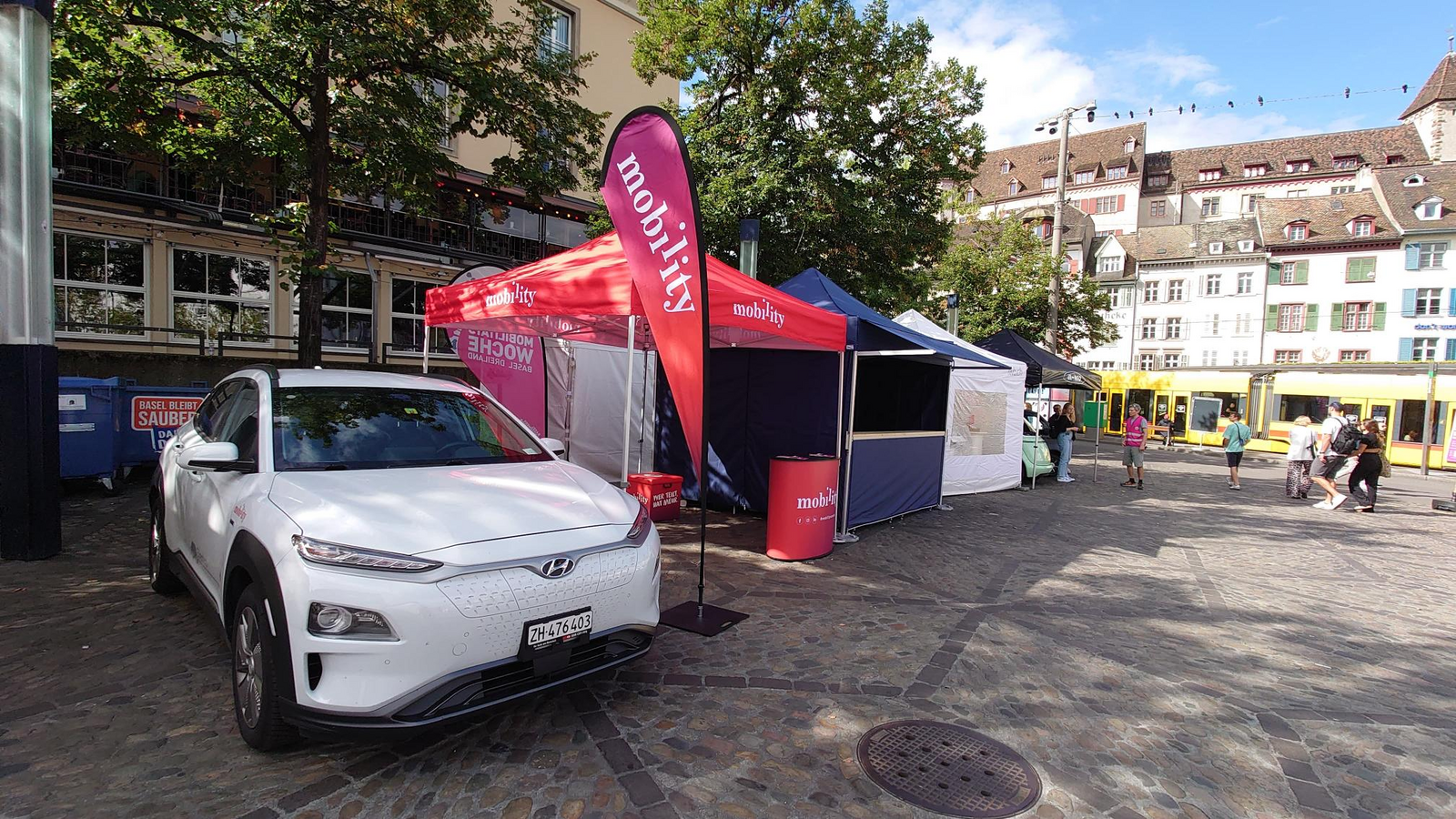There are cities that have something that others lack: flair, charm, charisma – that certain je ne sais quoi. Basel is just such a city. The languages and cultures of Switzerland, France and Germany meet in the tri-border zone. The resulting diversity shapes the city in a unique way.
The region’s also characterised by the vibrant interaction between the three countries and within the city. Accordingly, the canton attaches great importance to the whole issue of mobility: “Solutions are needed to reduce the space required for mobility, especially in dense cities,” explains Daniel Hofer, media spokesman for Canton Basel-Stadt’s Department of Construction and Transport.
And because the city’s still growing, the issue remains a hot topic of debate. Thanks to various initiatives, the challenges are being mastered better here than in many other regions in the country. “We’ve managed to mitigate traffic growth through environmentally friendly mobility,” notes Hofer. Basel-Stadt’s a role model, especially in terms of shared mobility.
Ranked top among Swiss cities
Basel’s in pole position among Swiss cities in a “Shared Mobility Ranking” published by the TCS Mobility Academy and CHACOMO – the Swiss Alliance for Collaborative Mobility. The city currently has the highest density of shared mobility schemes, which is mainly down to the dense cycling and e-scooter network. There’s still room for improvement when it comes to car sharing, though. Considering this area in isolation, Basel comes only 18th in the aforementioned city ranking. The top three in terms of car sharing density are Aarau, Lausanne and Zurich.
However, Basel wants to change that, and much is happening on the car sharing front: for example, the cantonal government’s about to release up to 200 public parking spaces for car sharing providers. This is one of the reasons the canton’s commitment to car sharing was recently recognised with the first-ever CHACOM Oscar.
Mobility has ambitions for Basel
Mobility’s following the efforts in Basel with great interest. “Basel’s a role model in many respects,” enthuses Magdalena Balogh, Market Development Team Leader at Mobility. “Recent years have seen the canton push ahead with a raft of initiatives and put measures in place to promote shared mobility. We also warmly welcome its latest initiatives in the area of car sharing.” Mobility in Basel already has 148 vehicles (14 percent fully electric) stationed at 57 locations, mostly on private land. The proportion of vehicles stationed on public land is set to increase. Four new locations are already up and running in cooperation with the local authority; more will follow in the coming months. A welcome side effect is the boost being given to electrifying the Mobility fleet: most of the bays becoming available will be equipped with charge points.
Attention is being paid to stationing the vehicles in neighbourhoods where people live. Car-sharing providers such as Mobility can apply to the canton to have public parking spaces converted: “This process is still at an early stage,” says Magdalena Balogh. “That means there’s still room for improvement in terms of how it’s all implemented.” In addition, Mobility would like to station more than one vehicle at the locations provided. “Given the comparatively high utilisation of the vehicles and the charging infrastructure, this makes sense from our point of view.” The current situation doesn’t really allow this. “That said, we’re having constructive discussions with the authorities,” says Balogh.
Basel teaming up with Bern and Zurich
Basel is pleased its mobility-oriented efforts are gaining nationwide recognition. But as media spokesman Daniel Hofer recognises: “Shared mobility’s potential is far from exhausted.” The work being done in this area is based on the goals of Basel’s current mobility strategy, “Basel unterwegs – klimafreundlich ans Ziel”. The strategy was published in January 2023 and shows, among other things, the potential of shared mobility. The motto is “use it, don’t own it”. As Hofer explains: "If several people share one car instead of each owning their own, that one shared-use vehicle can replace up to ten private ones.” “What’s more, shared cars are used more intensively than private cars, which end up parked most of the time. So, over time, car sharing reduces the need for parking in the city.” Space freed up in this way can, for example, be used for greening the city to improve the urban climate.
Looking to the future, Basel is seeking to set up a joint platform with the cities of Bern and Zurich to broker, book and pay for mobility services. The idea is to integrate shared mobility services available at public transport hubs, as well as design schemes for businesses that support sustainable mobility for their employees. As a consequence, it looks like Basel will continue to have that certain something – other Swiss cities would do well to take a close look.
Recent years have seen Basel-Stadt demonstrate its commitment to shared mobility. In 2022, the city offered residents trial Mobility subscriptions to incentivise car sharing. In 2023, the cost of a car-sharing space was reduced to 100 francs a month. In addition, Basel has a liberal attitude towards smaller rental schemes such as those involving e-scooters. “We want to keep the threshold low in terms of promoting vehicle sharing and enabling new forms of mobility,” says Daniel Hofer, media spokesperson for Canton Basel-Stadt’s Department of Construction and Transport. The platform Basel unterwegs was created to keep people updated about the latest mobility-related developments. One of these is the “Mobility Week” campaign that promotes resource-saving, space-saving and climate-friendly ways of getting around the city.

Your comments will be posted within 24 hours.

Comments